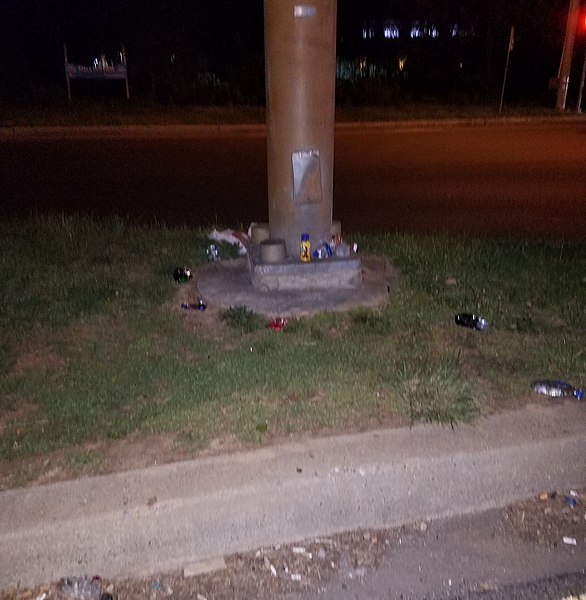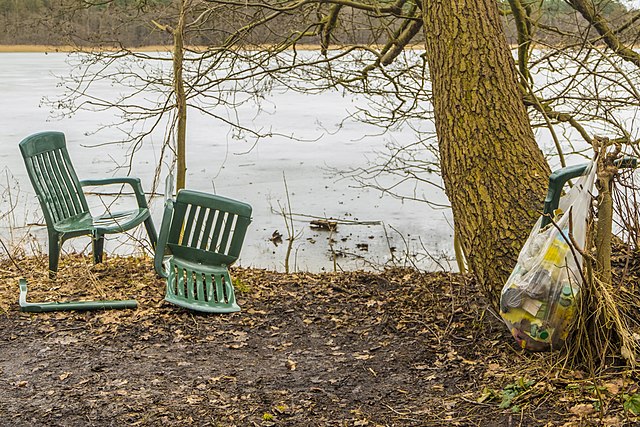Container-deposit legislation
Container-deposit legislation is any law that requires the collection of a monetary deposit on beverage containers at the point of sale and/or the payment of refund value to the consumers. When the container is returned to an authorized redemption center, or retailer in some jurisdictions, the deposit is partly or fully refunded to the redeemer. It is a deposit-refund system.
A deposit return machine for glass bottles, plastic bottles and bottle crates (left) in a Dutch supermarket
Refillable glass bottles collected, and deposits refunded, at a collection point in Bishkek, Kyrgyzstan. Deposit values (from 50 tyiyn to 2 Kyrgyz som, i.e. 2–5 U.S. cents) for various bottle types are posted next to the sample bottles on a rack.
A reverse vending machine in a Montreal grocery store.
Reverse container vending machine in Kooringal, New South Wales
Litter consists of waste products that have been discarded incorrectly, without consent, at an unsuitable location. The word litter can also be used as a verb: to litter means to drop and leave objects, often man-made, such as aluminum cans, paper cups, food wrappers, cardboard boxes or plastic bottles on the ground, and leave them there indefinitely or for other people to dispose of as opposed to disposing of them correctly.
Platform of Strathfield station in Sydney, Australia. Rubbish accumulated over months, perhaps years due to unsustained periods of frequent cleaning.
Rubbish on a street corner in Germantown, Maryland, left behind by panhandlers.
A small river's valley in India shows extensive littering of plastic and paper. Human waste, illustrated by the urinating man, increase fecal coliform and other bacteria levels in the water.
Littering in nature








